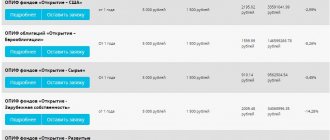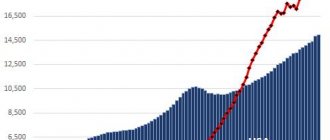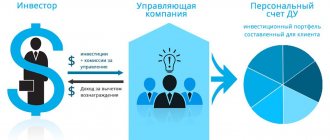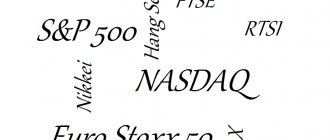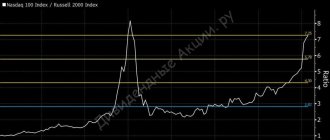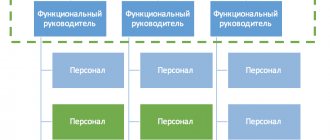Currently, many Russians are tormented by the question of how to preserve their savings during high inflation and earn money. Bank deposits are reliable, but their low returns barely cover the rate of inflation. And to play on the stock exchange yourself, you need significant start-up capital, as well as investment experience.
What should a novice investor do in this situation? The answer is obvious - invest in mutual funds (mutual investment funds). When deciding to join a mutual fund, first of all, you should choose a management company. BKS Management Company is one of the most stable and reliable companies in Russia, engaged in investments since 2000.
Due to the fact that BCS is part of a group of companies, this gives it the opportunity to use the most current technologies. Thanks to this, the management company has high growth rates and many reviews left. Mutual funds of this management company can often be found at the top of the ranking in terms of profitability.
However, most reviews about BCS concern the work of the bank, and not the management company. This is due to the unpopularity of investing in our country.
Among the main advantages of UK BKS are the following:
- high AAA rating;
- extensive agent network throughout the country;
- more than 12,000 satisfied customers.
Having decided on a company, you should wisely choose the mutual fund that best suits you. To do this, you need to answer the following question for yourself: what goal do you want to achieve when investing? This can be either maintaining savings at a minimum level of risk, or a desire to take risks and try to earn more.
General characteristics of BCS management funds:
- down payment amount – from 50,000 rubles;
- amount of additional contribution – from 5,000 rubles.
You can always track changes in the value of the share and securities quotes online on the website of the management company.
Dynamics of share value and NAV
| 11.03.2021 | |
| Share | 269.69 |
| NAV | 992 057 599.02 |
| Share | 269.69 |
| NAV | 992 057 599.02 |
| to previous date | 1 month | 6 months | 1 year | 3 years | 5 years |
| 0.01% | -0.16% | 2.53% | 7.88% | 25.45% | 45.78% |
| -1.28% | -4.41% | 0.54% | 15.29% | 27.51% | 296.41% |
| 0.01% | -0.16% | 2.53% | 7.88% | 25.45% | 45.78% |
| -1.28% | -4.41% | 0.54% | 15.29% | 27.51% | 296.41% |
Compare with index: IF-FI – bond funds
Clear Comparison data for the selected period is not available.
Clear Comparison data for the selected period is not available.
Clear Comparison data for the selected period is not available.
Clear Comparison data for the selected period is not available.
The maximum possible number of funds for comparison has been selected
| date | Share | NAV | ||
| 11.03.2021 | 269.69 | 992 057 599.02 | 269.69 | 992 057 599.02 |
| 10.03.2021 | 269.66 | 1 004 940 963.73 | 269.66 | 1 004 940 963.73 |
| 09.03.2021 | 269.48 | 1 005 922 805.09 | 269.48 | 1 005 922 805.09 |
| 05.03.2021 | 269.32 | 1 005 483 902.89 | 269.32 | 1 005 483 902.89 |
| 04.03.2021 | 269.33 | 1 008 098 770.30 | 269.33 | 1 008 098 770.30 |
| 03.03.2021 | 269.42 | 1 008 822 861.42 | 269.42 | 1 008 822 861.42 |
| 02.03.2021 | 269.56 | 1 013 070 557.79 | 269.56 | 1 013 070 557.79 |
| 01.03.2021 | 269.44 | 1 013 194 038.97 | 269.44 | 1 013 194 038.97 |
| 26.02.2021 | 269.33 | 1 012 845 817.30 | 269.33 | 1 012 845 817.30 |
| 25.02.2021 | 269.68 | 1 016 868 659.93 | 269.68 | 1 016 868 659.93 |
| date | Share | NAV | ||
| 24.02.2021 | 269.62 | 1 016 656 766.86 | 269.62 | 1 016 656 766.86 |
| 20.02.2021 | 269.72 | 1 020 455 462.30 | 269.72 | 1 020 455 462.30 |
| 19.02.2021 | 269.61 | 1 019 657 181.07 | 269.61 | 1 019 657 181.07 |
| 18.02.2021 | 269.53 | 1 022 773 332.56 | 269.53 | 1 022 773 332.56 |
| 17.02.2021 | 269.64 | 1 023 759 038.17 | 269.64 | 1 023 759 038.17 |
| 16.02.2021 | 270.05 | 1 028 091 349.45 | 270.05 | 1 028 091 349.45 |
| 15.02.2021 | 270.19 | 1 032 429 992.44 | 270.19 | 1 032 429 992.44 |
| 12.02.2021 | 270.22 | 1 037 946 065.89 | 270.22 | 1 037 946 065.89 |
| 11.02.2021 | 270.12 | 1 037 838 667.59 | 270.12 | 1 037 838 667.59 |
| 10.02.2021 | 270.38 | 1 039 350 630.17 | 270.38 | 1 039 350 630.17 |
| date | Share | NAV | ||
| 09.02.2021 | 270.33 | 1 037 677 633.74 | 270.33 | 1 037 677 633.74 |
| 08.02.2021 | 270.59 | 1 037 324 223.56 | 270.59 | 1 037 324 223.56 |
| 05.02.2021 | 270.38 | 1 039 536 329.50 | 270.38 | 1 039 536 329.50 |
| 04.02.2021 | 270.22 | 1 041 846 376.58 | 270.22 | 1 041 846 376.58 |
| 03.02.2021 | 270.21 | 1 042 061 118.97 | 270.21 | 1 042 061 118.97 |
| 02.02.2021 | 270.06 | 1 042 862 269.89 | 270.06 | 1 042 862 269.89 |
| 01.02.2021 | 270.18 | 1 046 434 349.15 | 270.18 | 1 046 434 349.15 |
| 29.01.2021 | 269.93 | 1 045 572 087.72 | 269.93 | 1 045 572 087.72 |
| 28.01.2021 | 269.96 | 1 052 153 716.93 | 269.96 | 1 052 153 716.93 |
| 27.01.2021 | 269.9 | 1 052 785 317.04 | 269.9 | 1 052 785 317.04 |
The start date is greater than the end date. Downloading data in this range is not possible.
- Management company Brokercreditservice
- Registration number
0140-58233625 - Fund currency
RUB - Formation
from 03.11.2003 to 26.12.2003 - Shareholders as of 09/30/2020
4 176 - Exchange
Moscow Exchange - Ticker
RU000A0JP799 - ISIN
RU000A0JP799
08/08/2019 An operation was carried out to split the shares of the open-end investment fund "BCS Osnova" with a ratio of 1:20. The historical values of the share price and NAV have been recalculated taking into account this operation.
The fund's conservative strategy is aimed at increasing the value of the unit at a low level of risk. Investment idea - bonds of large Russian companies with a high credit rating.
The previous name was “BCS – National Bond Fund”.
Minimum investment amount for the first purchase of shares: through an Agent - 10,000, through BCS Management Company - 5,000,000.
The minimum investment amount for subsequent purchases of shares: through the Agent - 1,000, through the BCS Management Company - 1,000,000.
Trust management rules
Show all Hide
- Special depository INFINITUM
- Special registrar
INFINITUM - Auditor
of CJSC Consulting Group “Balance”
30.09.2020
No quality rating assigned: Insufficient share of Russian assets in the fund structure
Minimum investment amount
- Initial payment 10,000 RUB
- Subsequent payment
1,000 RUB
Infrastructure costs
- Management company's remuneration
1.5% - Remuneration to the depositary, etc.
0.3% inclusive of VAT - Other expenses
1% including VAT
Supplements for purchases through the management company
| Surcharge |
| 1% |
| 0.5% |
| 0% |
| 0% |
| 0% |
| Purchase amount | A comment |
| up to 499,999 RUB | When submitting an application to the branch of Management Company BKS at the address: Moscow, Mira Ave., 69, building 1 |
| from 500,000 to 1,499,999 RUB | |
| from 1,500,000 RUB | |
| When submitting an application to the management company, except for the branch of the management company BKS at the address: Moscow, Mira Ave., 69, building 1 | |
| When submitting an application by a trustee |
Supplements when purchasing through agents
| Purchase amount | Agent | A comment |
| up to 499,999 RUB | ||
| from 500,000 to 1,499,999 RUB | ||
| from 1,500,000 RUB | ||
| When submitting an application by a trustee |
Commissions for repayment through the management company
| Commission |
| 3% |
| 2% |
| 1% |
| 0.5% |
| 0% |
| 0% |
| 0% |
| Tenure period | A comment |
| up to 181 days | When submitting an application to the branch of Management Company BKS at the address: Moscow, Mira Ave., 69, building 1; When submitting an application to the management company, except for the branch of the management company BKS at the address: Moscow, Mira Ave., 69, building 1, subject to repayment of less than 2000 shares per application |
| from 182 to 365 days | |
| from 366 to 548 days | |
| from 549 to 1,095 days | |
| from 1,096 days | |
| When submitting an application to the management company, except for the branch of the management company BKS at the address: Moscow, Mira Ave., 69, building 1, subject to the repayment of more than 2000 shares per application | |
| When redeeming investment units on the personal account of a trustee or nominee holder. |
Commissions for redemption through agents
| Commission |
| 3% |
| 2% |
| 1% |
| 0.5% |
| 0% |
| 0% |
| Tenure period | Agent | A comment |
| up to 181 days | ||
| from 182 to 365 days | ||
| from 366 to 548 days | ||
| from 549 to 1,095 days | ||
| from 1,096 days | ||
| When redeeming investment units on the personal account of a trustee or nominee holder. |
Show all Hide
| Coefficient | position / 223 funds | |
| Sharpe ratio | 0.237 | 55 |
| Sortino coefficient | 0.240 | 70 |
| Volatility | 1.06% | 22 |
| VaR | -1.08% | 21 |
| α-coefficient | -3.846 | |
| β-coefficient | 0.096 | |
| R2 | 17.89% |
Mutual Funds profitability
Investment in mutual funds does not guarantee profitability. It happens that shareholders receive nothing from their investment or even lose money. The level of profitability is influenced by many factors, including:
- asset management company experience;
- seasonality;
- level of knowledge of economics;
- the presence of a financial crisis;
- Exchange Rates;
- and etc.
Each fund's annual investment results vary. For example, several mutual funds in 2021 had an increase of 25%, while some significantly reduced savings.
When receiving income from a mutual fund, the shareholder is required to pay personal income tax. The management company, acting as a tax agent, undertakes to pay taxes.
When a shareholder sells his share, he pays the tax on the possible profitability of shares and bonds independently. Possible income is the difference between the amount received from the sale of shares and the total cost of their acquisition. For Russian citizens, the specified tax is 13%, for foreigners 30%. When paying taxes, there are benefits for some payers.
BCS Premier service
In comparison with remote banking services on standard terms and the usual set of options from other companies and banks, the BCS Premier system tries to build a chain of relationships with the client based on an individual approach. In fact, the system’s work is not only to inform the user about the status of his account, but to find optimal financial solutions for him. Another question is that these “optimal” solutions may turn out to be much more optimal for the broker, forcing the client to perform certain actions on his account that are inevitably associated with commissions.
In other words, the system thinks for the client, generating options for the current situation and based on personal financial planning technologies. As part of the partnership, the company can provide borrowed funds to the client, and in this case it is possible to use securities that are in his brokerage account as collateral. Interestingly, when receiving borrowed funds, the collateral assets are not frozen and the client retains the right to use them at his own discretion.
Loan funds are usually issued no more than 24 hours after application is submitted; Loan repayment terms are quite flexible and are not limited to a specific date. Considering the service system of BCS Bank and BCS Premier in context, we can highlight the following advantages:
- The interface is relatively convenient, there are informative tabs
- Possibility of obtaining advice and assistance from a financial advisor
- A wide range of investment instruments (investment funds, structured products, trust management, savings and investment insurance options), which can be selected with the help of a financial advisor
- Possibility of opening debit cards with a wide range of additional bonus programs, including return of interest on purchases and accrual of up to 7.5% on the balance, as well as insurance programs
- Possibility of purchasing and withdrawing currencies online
BCS Premier also provides a universal service system within a personal account with the ability to remotely open a single brokerage account. Your personal account provides direct access to international trading platforms, analytics and support, as well as training and professional development opportunities.
Mutual fund
A share is a conditional share of property in a fund. This is a share commensurate with the investor's investment.
The fund is a kind of piggy bank for investors.
The concept of “ investment ” implies further investment of accumulated funds from the fund.
Investments in mutual funds
A mutual fund is a form of collective investment for profit under the direction of a management company.
The operating principle of mutual funds is to collect funds from shareholders and invest them in an exchange-traded instrument with a high level of profitability. Mutual investment funds are characterized by the absence of the status of legal entities.
Such financing instruments form asset management organizations to create investment capital. Mutual investment fund involves trust management.
A mutual fund is a kind of piggy bank for investors to invest funds. Money from this piggy bank is placed at the disposal of an asset management company, which purchases securities with it, having previously created an investment portfolio.
Classification of mutual funds
Mutual funds are divided into 2 large groups:
- Direction of investment;
- Period of acquisition or redemption of a share.
Each direction of investment of a mutual fund is subdivided taking into account the type of instrument. The work of mutual funds cannot be done without the following tools:
- shares;
- bonds;
- money markets;
- mixed investments;
- mortgages;
- indexes;
- real estate.
Mutual funds, depending on the period of acquisition or redemption of the share, are divided into several types:
Open fund. The purchase or sale of shares can occur daily, you just need to contact the management company. With this type of mutual funds, account replenishment occurs quite quickly.
Closed-end fund. You can purchase a share only after the fund has been formed. The shareholder is allowed to sell a share of the property upon its closure.
Interval fund. Units are bought and sold at a set period of time. Usually, this can be done 2-3 times a year.
A special feature of closed and interval types of mutual funds is the possibility of investing in low-liquid instruments. They form a forecast about the period for the investor to receive his funds. Despite the greater risks associated with less liquid instruments, they help the investor obtain greater profits.
Real estate mutual funds
Mutual investment funds are also divided according to the assets included in their structure.
Real estate mutual fund is the most reliable fund. There is always a demand for this category of insured property. Investing in real estate is a long-term investment. The minimum investment amount for an investor in such mutual funds, due to the high cost of real estate, is 1 million rubles. Management companies prefer to cooperate with a small group of large investors rather than with many small shareholders.
The operating principle of a real estate mutual fund
An investor with a capital of 2 million comes to a management company (MC) with the goal of obtaining a return on assets. The management company selects 9 more investors with the same capital and forms a mutual fund. The funds received are transferred to the fund. The company buys commercial real estate with a value equivalent to the total capital of the shareholders and leases it out. If the outcome is positive and the value of the property increases, shareholders will have a stable rental income, and the management company will receive a reward from the transaction.
Mutual funds of shares and bonds
The risk in stock and bond mutual funds is significantly higher than in real estate mutual funds. These funds operate with securities, cash, and investor loans.
Securities are not subject to tax, unlike real estate. The minimum investment for an investor in such a fund can start from 1000 rubles. Each management company sets its own entry threshold for a shareholder.
The principle of operation of mutual funds of shares and bonds
For example, an investor has a certain amount of money from which he wants to receive profitability with minimal risk. At the same time, he is not able to play on the stock exchange independently. In this case, the best solution to the task at hand is to contact the management company. The company will select a group of other investors with similar needs, pool their investments and form a stock and bond fund. Next, the management company purchases securities using funds from the fund. Part of the funds is used to purchase shares, and the rest is used to buy bonds of large corporations with promising development. When choosing corporations, the management company takes into account the size of coupon payments. Part of these payments goes to shares of open-end mutual investment funds, the rest─ the company transfers to deposits.
Combined mutual fund
Combined mutual investments began to be used relatively recently. Combination funds do not involve cash investments. The following investments can be used: transport, jewelry, cryptocurrency, works of art, collectible alcohol and much more. The type of investment depends on the requirements of the fund created by the management company. With this type of investment, the property must be kept in a depository. The exception is real estate.
Management companies most often use traditional financial instruments. And combined funds are created in special cases, while carefully choosing the type of investment.
Mutual Fund Infrastructure
To protect the interests of investors when using mutual funds, a share management system has been created. This system is headed by management companies (MCs).
The management company operates deposits using the following tools:
- registrar, which is an organization for maintaining records of shareholders, as well as issuing new shares;
- a specialized depository serving for the storage and operation of the fund’s property. Depositories are able to terminate the management company’s agreement with assets if it violates the interests of shareholders;
- an auditor who controls the fund's operations and verifies the legality of each transaction. Upon completion of transactions, auditors prepare a report.
You can find a more complex structure of mutual funds in which, in addition to the main assistants, management companies use:
- custodian banks serving to ensure the safety of property assets;
- market makers. Used during trading on exchanges to ensure liquidity of shares;
- appraiser. Open-end and interval funds cannot do without appraisers.

